Welcome back to the Odyssey. As always, you can click here to read all parts of the journey covered so far. Last time, we took a look at how the final BCS Standings shook out, while also taking a look at their ultimate result. Today, we take one look back at the season, figuring out its place in history.
Introduction: Why This Season?
The easy answer is that this fall marks the 20 year anniversary of this season. The more complex answer can be traced back to the introduction of the series. At the beginning of the series, I brought up the cases of 2003, 2004, and 2011 being more remembered for their seasons raising up concerns about the BCS. 2007 is widely considered to be the wildest college football season of all time. In terms of modern college football seasons, the 2001 season seems to fall in between the cracks because of the conclusiveness of the Championship Game. However, that is only one of the three things that make this season excellent for college football fans. The three things I wanted to bring up in in this series were showing how the 2001 season had the following:
- An unpredictable, entertaining season
- Showing the flaws of the BCS system
- Still having a worthy champion
Today, we’re going to recap all of those three of those points, one by one, to show why this season needs to be remembered more beyond the final result.
Point #1: Unpredictability
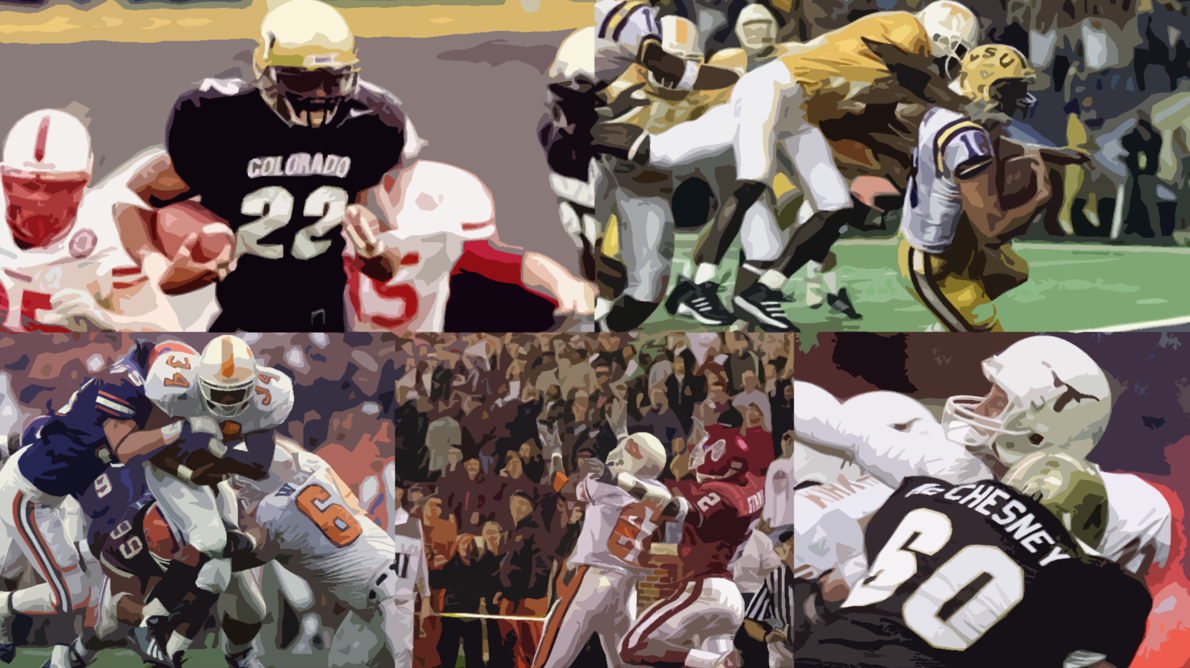
Some of the Many Last Week Upsets
One of the forgotten things about this season is how fluid the situation the National Championship picture was in the final month. As we have gone over, the #1 and #2 spot was hot potatoed several times over the final month, including sometimes multiple times in one day. The 2007 season is the only other season in the modern era that can boast such a chaotic end of season. The chaos also went down the line to other places as well. As has been mentioned, Illinois and Maryland rose to prominence to win their respective conferences, over some heavyweights Michigan and Florida State. Another aspect that almost added to the unpredictability was we were close to having a non-power go undefeated as well.
BYU went into the weekend of December 9th undefeated and #12 in the BCS Standings. If they had knocked off Hawaii that afternoon, they would have made a case for themselves to included in a BCS bowl game. They would be the first non-power team (that isn’t Notre Dame) to qualify for a bowl since the BCS started. But alas, the BCS chaos was merely limited to the top of the standings.
Point #2: BCS Cracks Forming
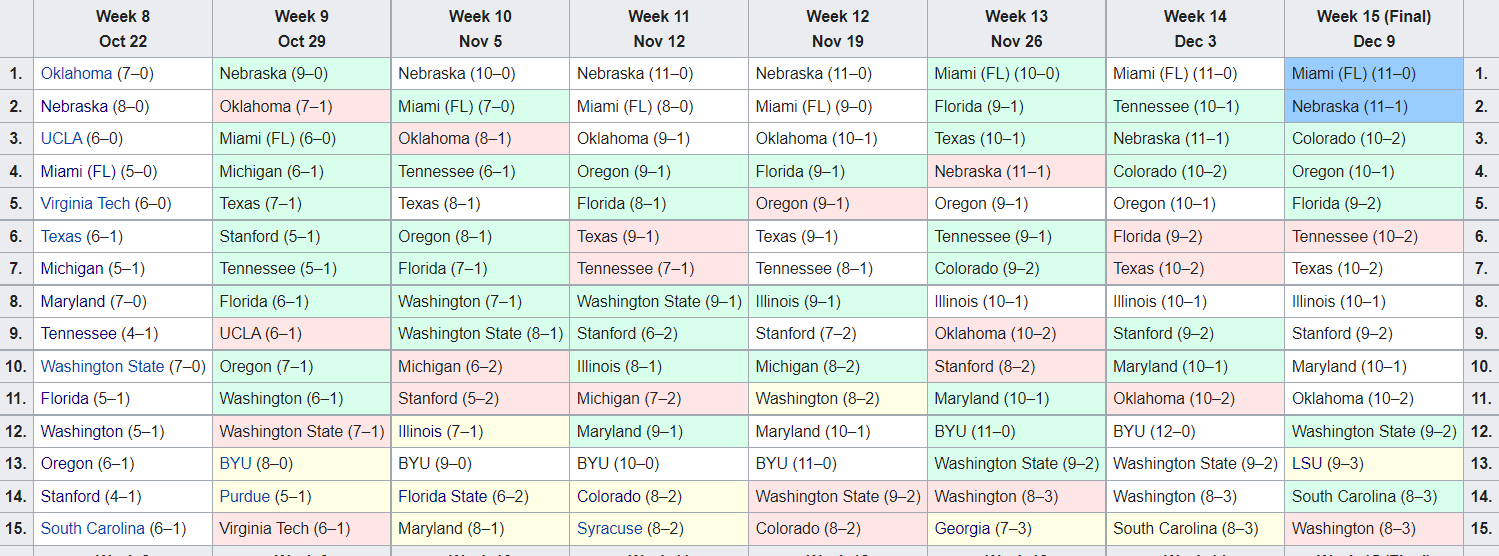
The Full 2001 BCS Standings
The biggest story arc throughout this series has been how flawed this system was. We briefly talked about the 2000 season, but that seemed pretty straight forward since it was essentially between two teams who had played one another. This season, as mentioned earlier, saw multiple different teams have a chance to play for the National Championship, including two who ultimately did not.
It was pointed out last week that the more modern BCS formula would have favored Oregon in that situation. On top of that, people look to Oregon’s destruction of Colorado in the Fiesta Bowl as a reason to give them an opportunity to face Miami in the National Championship. While I won’t bring that logic into it, I will argue that the Ducks have a legitimate gripe with the system. Because of the changes of “big wins” added the previous offseason, Oregon was left out in favor of Colorado.
Colorado, on the other hand, also had a major gripe with the system akin to Miami the previous season. They had beaten Nebraska handedly. However, because they had two losses on the season, they were also left out. It meant nothing to the computers that Colorado made up their loss to Texas by beating them. The computers saw Nebraska’s previous 11 games. The Huskers had beaten their opponents by an average margin of 26 points. That led to even more changes and tweaks to the BCS formula.
In the following June, the BCS tweaked two major things that would have major ramifications for the years to come. The two pronged attack was to a) limit margin of victory and b) limit quality wins to top ten teams. The idea behind it was to look more towards strength of schedule rather than margin of victory and only rewarding elite wins. For me personally, I think the idea of deducting losses from their teams value is redundant to using the rankings from the human polls. I went through the final BCS Standings, but used the 2002 version of the BCS, and also removed losses from the equation and came up with the below:

As you can see, when you eliminate the losses for Colorado (that seem to be taken into account in their human rankings), they look to squeeze Nebraska. Oregon looks to falter due to the lack of quality wins outside of the top ten. However, you can see that Nebraska would fall out of the Title Game. However, there is an argument to be made that no matter who was going to Pasadena was not going to be Miami.
Point #3: A Worthy Champion
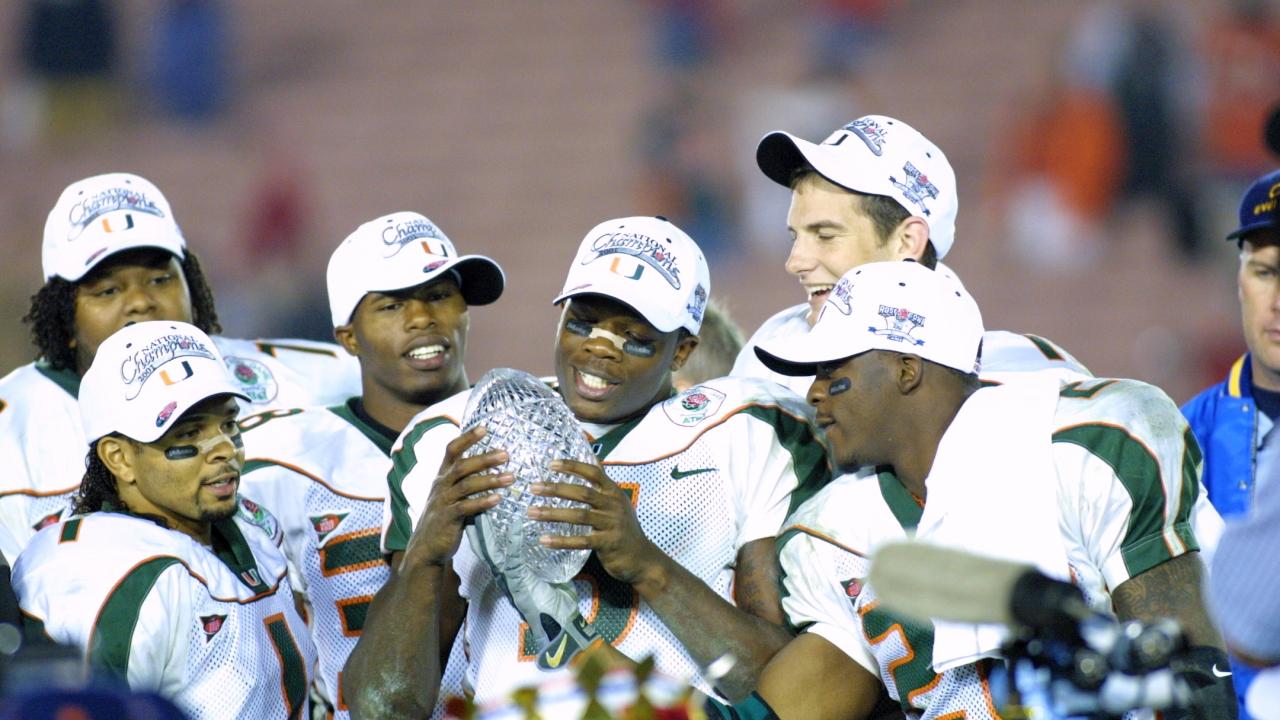
The Greatest Team Ever?
Around the time LSU was finishing off Clemson in the 2019 CFP National Championship, the conversation began. Do they stack up to 2001 Miami? That question has persisted since they demolished Nebraska that January night. That only furthers the claim that 2001 should be remembered beyond this team.
Every good story should have a satisfying ending. If Nebraska was to win the 2001 Rose Bowl, and Oregon won the AP National Championship while Nebraska won the Coaches, the end of the story would have made sense given the chaos, but not been satisfying. Miami winning in the manner that they did showed how much distance there was between them and everyone else in the college football landscape this season. Would I personally have liked to see Oregon or Colorado take on the Miami team? Yes of course. However, I’m not sure it would have made that much of a difference.
Despite their close games against Boston College and Virginia Tech, the Hurricanes only trailed twice all year. They seemed dominant both in the moment and historically. Their last four games, which started with the Syracuse game, were against ranked teams. They outscored them 187-45, cementing their standing. After all other teams fell by to the wayside, the Hurricanes stood strong and flexed their muscles to finish an all time season.
Conclusion
That brings us to the end of the vast long offseason project. I just wanted to reach out to anyone who read any or all of these pieces over this offseason. This was such a fun project to take on and learn more about. This was something I truly enjoyed sharing my findings and thoughts about the season. As I mentioned before, this was one of the original sports takes I had growing up so it felt like a full circle moment going back and looking deeper into this season and learning things along the way. Thanks once again for the great feedback. Sound off below your thoughts on the complete journey and any thoughts on the 2001 season as a whole!

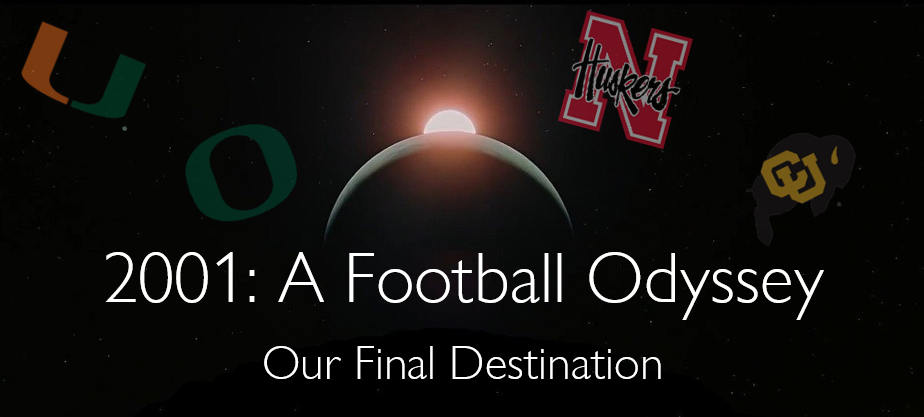
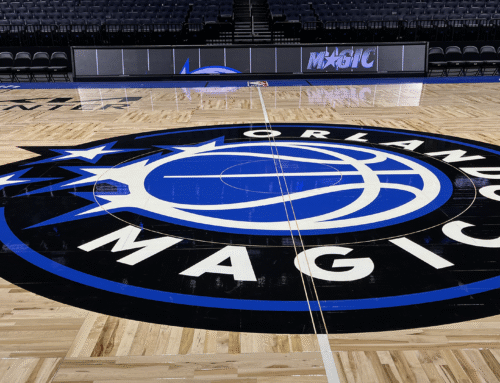

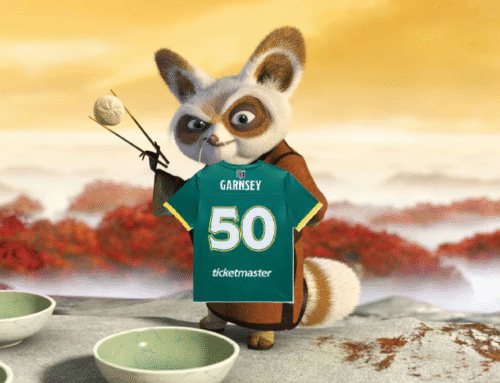
Great series PJ, thanks for all the research and great writing, loved reading these over the off-season months. I agree with your conclusions, chaos almost reigned but that Miami team was just too special to be denied.
It’s also very, very difficult to believe this all happened 20 years ago.
Thanks, I really enjoyed this series.
However, I couldve done without seeing that last photo of Miami holding up the championship trophy. I feel nauseous just writing that.